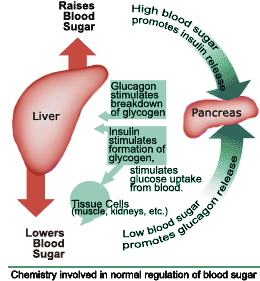
What are normal glucose levels? This is the kind of question that most people never ask. Most people could care less about blood glucose levels and live blissfully unaware of how glucose levels can affect health, unless they suddenly find themselves diagnosed with diabetes.
Heart disease, cancer, and stroke rates are all on the decline, but diabetes rates are rising at a staggering rate and an increasing number of people find themselves concerned with the question of, “What are normal glucose levels?”
In order to answer the question, “what are normal glucose levels?” one should first understand what glucose is and how it works. Glucose is basically what fuels every cell in the body. When we ingest sugars and carbohydrates the body metabolizes them into glucose which is actually a type of simple sugar. The glucose goes into the bloodstream where insulin, a hormone produced by the pancreas, causes the cells to “open up” so that the glucose can enter the cell and be used for fuel.
Without glucose the body would cease to function as surely as trying to run a car without gas, and higher than normal levels of glucose can damage many different body systems, causing kidney damage, heart problems, neuropathies, glaucoma, or even coma and death. Like most everything in medicine the answer to the question, “what are normal glucose levels?” may vary from patient to patient based on factors such as age, weight, other health conditions, and even exercise levels. Because of this, there are no hard and fast answers, but in most cases if you asked a doctor “what are normal glucose levels?” he would answer that normal glucose levels are usually between 60 and 110 in a normal person. If you check your sugar regularly and find that it is running higher than 110 or lower than 60 it is probably a good idea to stop asking “what are normal glucose levels?” and go see your doctor to find out if your body is metabolizing glucose correctly.
